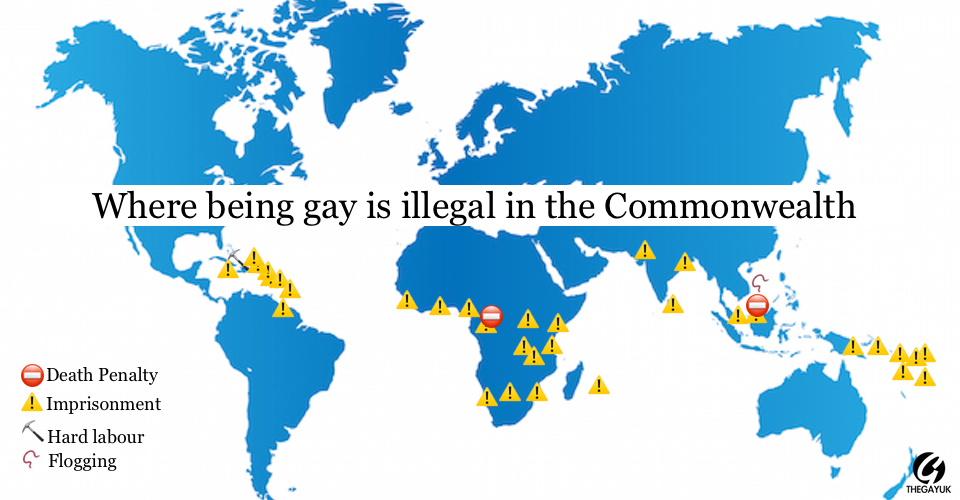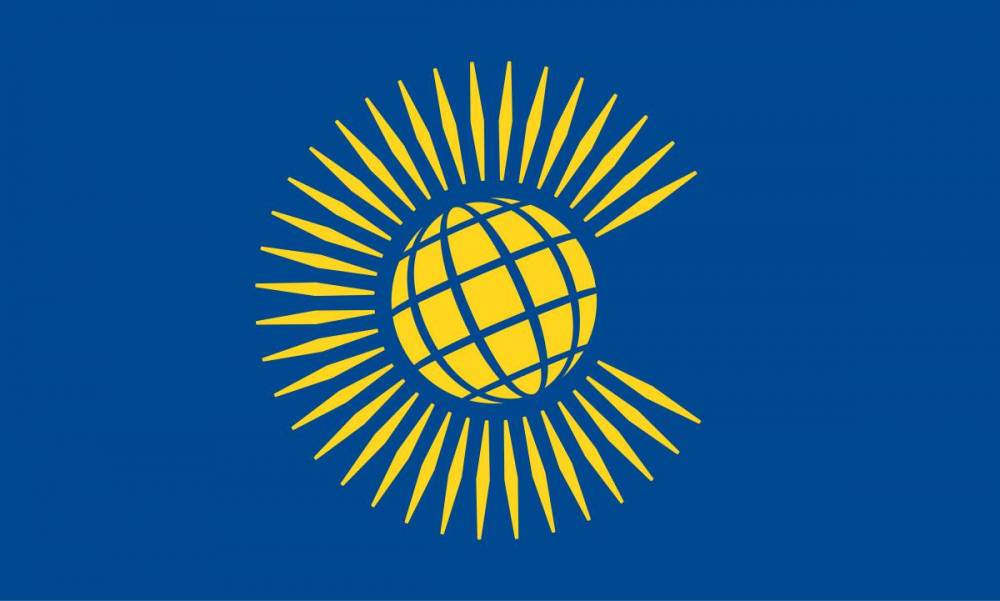There are over 70 countries where homosexuality is illegal. 35 of them are in the Commonwealth.

As our Government looks to form closer relationships with the 53 countries that make the Commonwealth post-Brexit, we discover which of those nations have active legislation against being gay. There are 35 nations in the Commonwealth where it is illegal to be LGBT+, more specifically the laws usually only target gay and bisexual men. Some of these countries have harsh punishments for those caught in same-sex relationships, such as the death penalty, flogging or life imprisonment.

- Antiqua and Barbuda
- Bangladesh
- Barbados
- Botswana
- Brunei
- Cameroon
- Cook Islands
- The Gambia
- Ghana
- Grenada
- Guyana
- Jamaica
- Kenya
- Kiribati
- Malawi
- Malaysia
- Mauritius
- Namibia
- Northern Nigeria*
- Pakistan
- Papua New Guinea
- Saint Kitts and Nevis
- Saint Lucia
- Saint Vincent and the Grenadines
- Samoa
- Sierra Leone
- Singapore
- Solomon Islands
- Southern Nigeria*
- Sri Lanka
- Swaziland
- Tanzania
- Tonga
- Tuvalu
- Uganda
- Zambia
Northern and Southern Nigeria are one nation but have different laws pertaining to homosexuality.
Where did the anti-gay laws come from?
Many of the countries that make up the Commonwealth were part of the former British Empire, which established forms of British law in colonies created by administrators. One of these is the infamous Section 377, which India recently struck down. The section prohibits homosexual acts, more specifically anal sex between men.
Which countries in the Commonwealth have the death penalty for gay people?
There are two nations which currently have the death penalty for same-sex relationships between men. Northern Nigeria and Brunei. There are some countries which have a maximum of life in prison, these include, Bangladesh, Barbados, Guyana, Pakistan, Sierra Leone, Tanzania and Uganda.
In Jamaica, the penalty for same-sex relations is 10 years imprisonment and hard labour in Jamaica. In Kenya, the punishment is 14 years.
Flogging?
In Malaysia, you could be subject to flogging and 20 years in prison.
What has the UK said it will do?
In 2018 the UK’s government launched an LGBT+ action plan, in which it said it wanted to deal with issues faced by the LGBT community across the Commonwealth. Part of the plan specifically mentioned the Commonwealth. The government has offered support to Commonwealth countries wishing to reform discriminatory legislation. There is a £5.6 million programme, to be delivered through civil society organisations and will advance the legal equality and rights of all Commonwealth citizens, regardless of gender, sex, sexual orientation or gender identity. However, critics say that £5.6 million is a minuscule amount of money to split between the nations that could consider decriminalising homosexuality.
The government also stated it would, “work through UK embassies, high commissions and through international organisations, including the United Nations, European institution and the Commonwealth, to protect and promote LGBT rights and to address laws discriminating against LGBT people”.
What has Theresa May said about anti-gay laws in the Commonwealth?
In April, the UK’s Prime Minister, Theresa May said that anti-gay laws in the Commonwealth “were wrong then, and they are wrong now”.
In a speech to the biennial Commonwealth Heads of Government Meeting (CHOGM), Ms May said, “I am all too aware that these laws were often put in place by my own country. They were wrong then, and they are wrong now
“As the UK’s prime minister, I deeply regret both the fact that such laws were introduced, and the legacy of discrimination, violence and even death that persists today,” she added.



